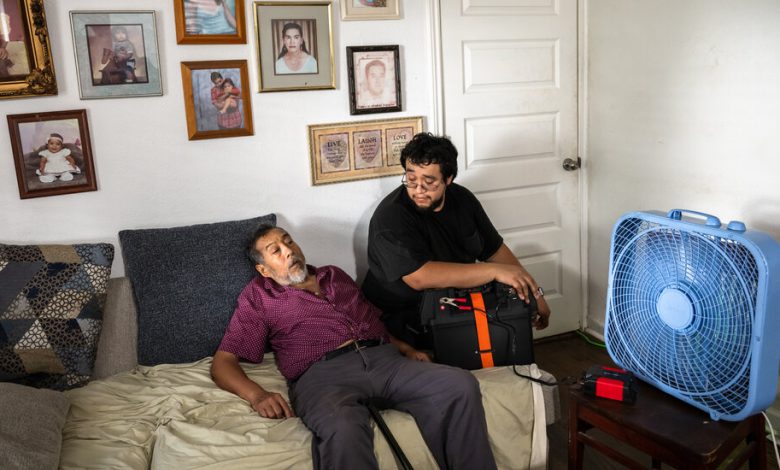U.S. Heat Wave Stretches Into Another Day, and Starts to Move East

A stubborn heat wave that has engulfed much of the Western United States for more than a week continued to linger over the region on Friday, with triple-digit temperatures expected to stretch into the weekend for millions of Americans.
In the Denver area, a heat advisory was in effect through the weekend, with the National Weather Service predicting record-breaking temperatures for both Saturday and Sunday.
In Las Vegas, where the punishing heat had stunned even forecasters, the weekend was expected to bring some relief but only by a few degrees. The daily high on Saturday was forecast to drop below 115 degrees for the first time in seven days — to 113 degrees. Sunday is expected to be a “cooler” 109, the Weather Service said.
The extreme heat will push into the Midwest and Eastern U.S. by early next week, with heat indexes as high as 110 degrees expected in the Philadelphia area and in the low 100s in New York.
In southeast Texas, the heat has been made all the worse by power outages from Tropical Storm Beryl, which knocked out electricity for millions of residents this week. The main utility in Houston, CenterPoint Energy, said that half a million customers would remain without power until next week. Nearly 900,000 still had no electricity as of Friday morning.
A heat advisory remained in effect for parts of the region through Friday evening, and meteorologists said they expected to keep that in place for several days. In part, that reflected hot and humid conditions; the heat index was forecast to reach 106 degrees in some areas.
But it was also a response to the elevated risks for people without air-conditioning. On Tuesday afternoon, a 60-year-old man who was disabled and homebound died from a heat stroke in his Matagorda County home after it lost power from Beryl, officials said.
In the West, officials suspect heat to be the cause of more than 90 deaths this month, though confirming that in each case could take months.